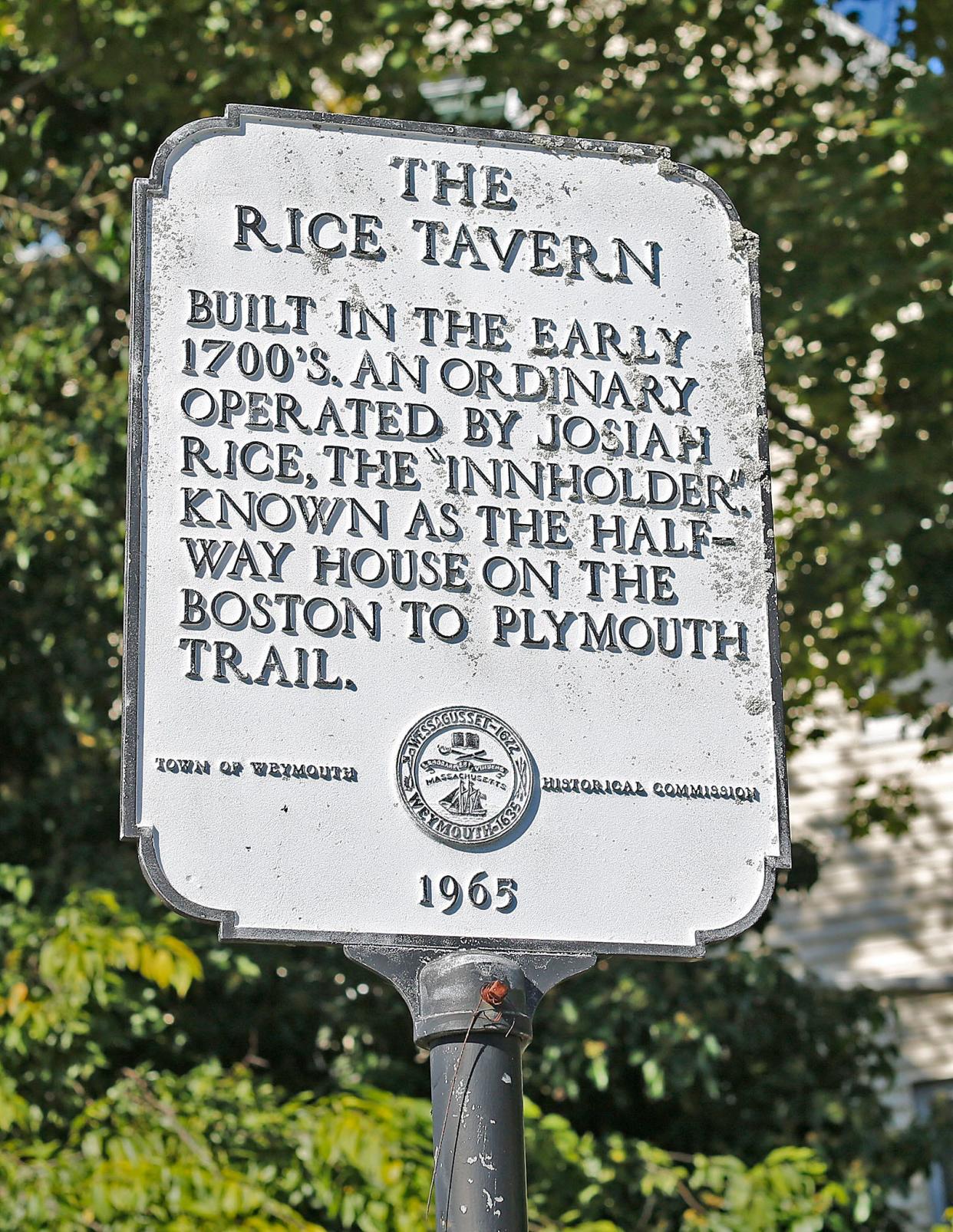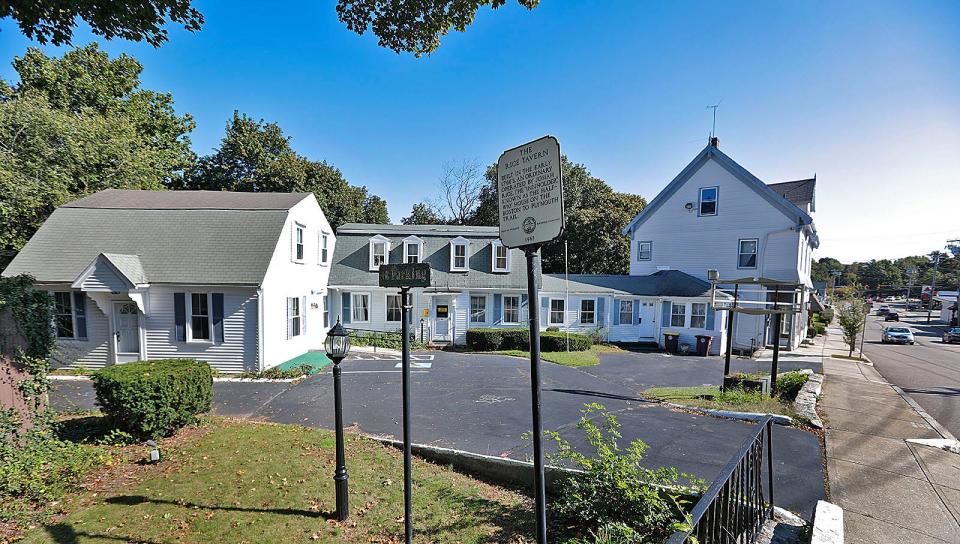Weymouth rules on proposed demolition of former 1700s tavern. But issue is far from over

- Oops!Something went wrong.Please try again later.
WEYMOUTH − The 18th-century building that once housed the Rice Tavern and the Peck Funeral Home in Weymouth has been temporarily saved from demolition, officials decided Tuesday.
Now an effort begins to determine how to preserve the centuries-old structure.
The Weymouth Historical Commission unanimously voted to declare 864-884 Broad St. as a “preferably preserved significant building,” meaning no demolition permit can be issued for six months.
Restaurateur Eric Papachristos has proposed a plan to redevelop that part of Jackson Square into 200 apartments, 11,000 square feet of retail space and off-street parking. The proposal includes demolishing the former Rice Tavern.
The commission's meeting was attended by two dozen residents, including Russell Peck Jr., grandson of Mortimer Peck, for whom the funeral home was named.
The Rice Tavern was built in the late 1700s and run by Josiah Rice. It was a place where travelers could get food and lodging. The property eventually became a funeral home.
But the tavern served another purpose, Russell Peck Jr. said: It was part of the Underground Railroad to safehouse people escaping slavery.
“Freedom comes because people make brave decisions to do the right thing,” he said.
After the nearly hour-and-a-half-long meeting, Papachristos said it was “very collaborative” with “great feedback” from the attendees.
More: Proposed redevelopment would add 200 apartments, retail space to Weymouth's Jackson Square
“I think they had a lot more options than what I would have come up with,” he said of the impassioned residents who pleaded for commissioners to pass a demolition delay.
Debbie Sargent Sullivan, president of the Weymouth Historical Society, said a developer has expressed interest in preserving the building, but Papachristos' team has not met with them.
Papachristos said he would meet with some people who spoke at the meeting as well as the historical commission to discuss the next steps, whether that means restoring the property in place or moving it.
The historical commission became involved in the Jackson Square project after a demolition permit had been requested. Weymouth has a rule that any building listed by the town as “historically significant” may be subject to a demolition delay if members of the commission find that demolition would be “detrimental to the historical or architectural heritage or resources of the town.”

If so, no demolition permit can be issued for six months. If nothing has been done to protect the building in that time, a demolition permit can be issued.
At first, Papachristos’ team appeared to convey to commission members why the building wouldn’t be right for a demolition delay, either because there wasn’t anything significant about the property or by pointing to the “extensive legwork” needed to bring the building up to code if it were to be restored to its original use as a tavern. The team said it had not consulted preservation experts.
All the while, his team expressed a willingness to work with town officials and other people interested in saving the building.
“We just haven’t been able to find a way to preserve the Rice Tavern, primarily because anybody who’s been in it understands that there’s nothing left of it,” said Gerry Kavanaugh, CEO of CMK Development Partners, a commercial real estate developer based in Weymouth that is representing Papachristos.
More: 1770s building might be demolished for Jackson Square project in Weymouth
Speaker after speaker told the commission why the town should try to save a piece of Weymouth’s history.
“If there’s one thing that this town gets right, is that we honor the history of the people in this town. The thing we get wrong is we don’t honor the buildings in this town,” said Tom Eldridge, who teaches preservation carpentry.
Hannah Morse covers growth and development for The Patriot Ledger. Contact her at hmorse@patriotledger.com.
This article originally appeared on The Patriot Ledger: Rice Tavern in Weymouth avoids demolition for at least six months

